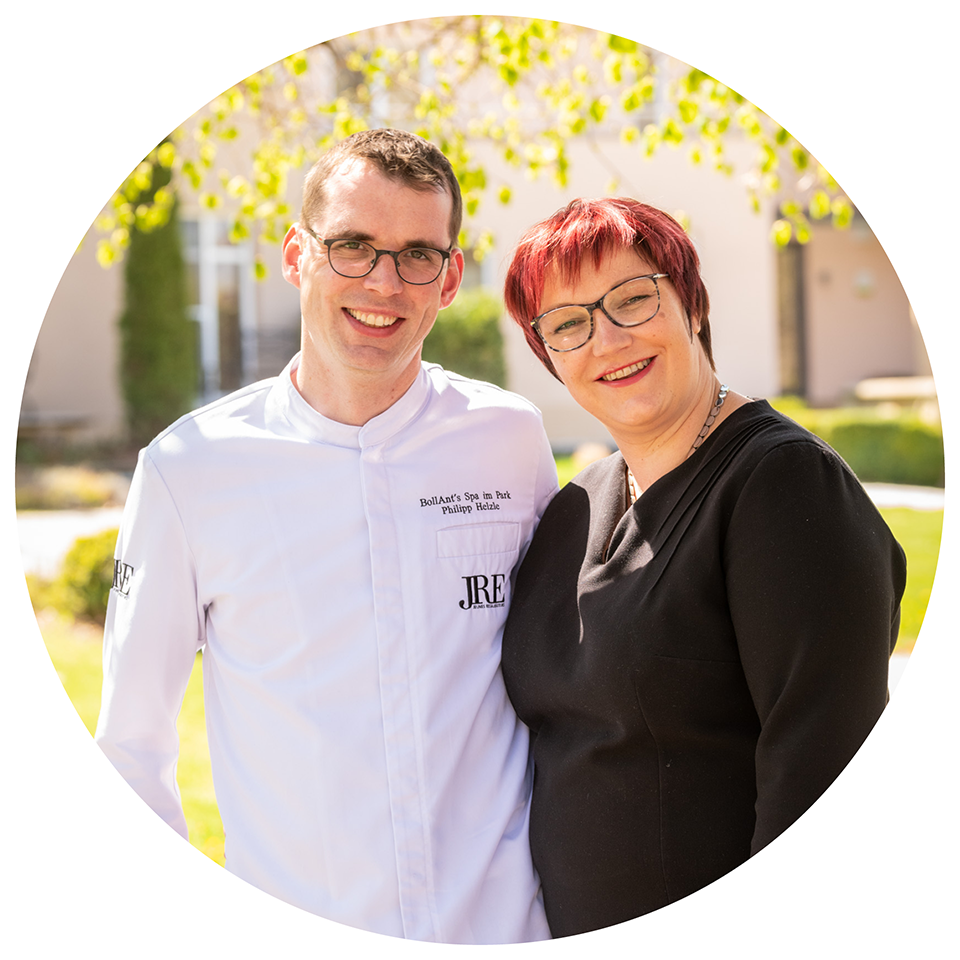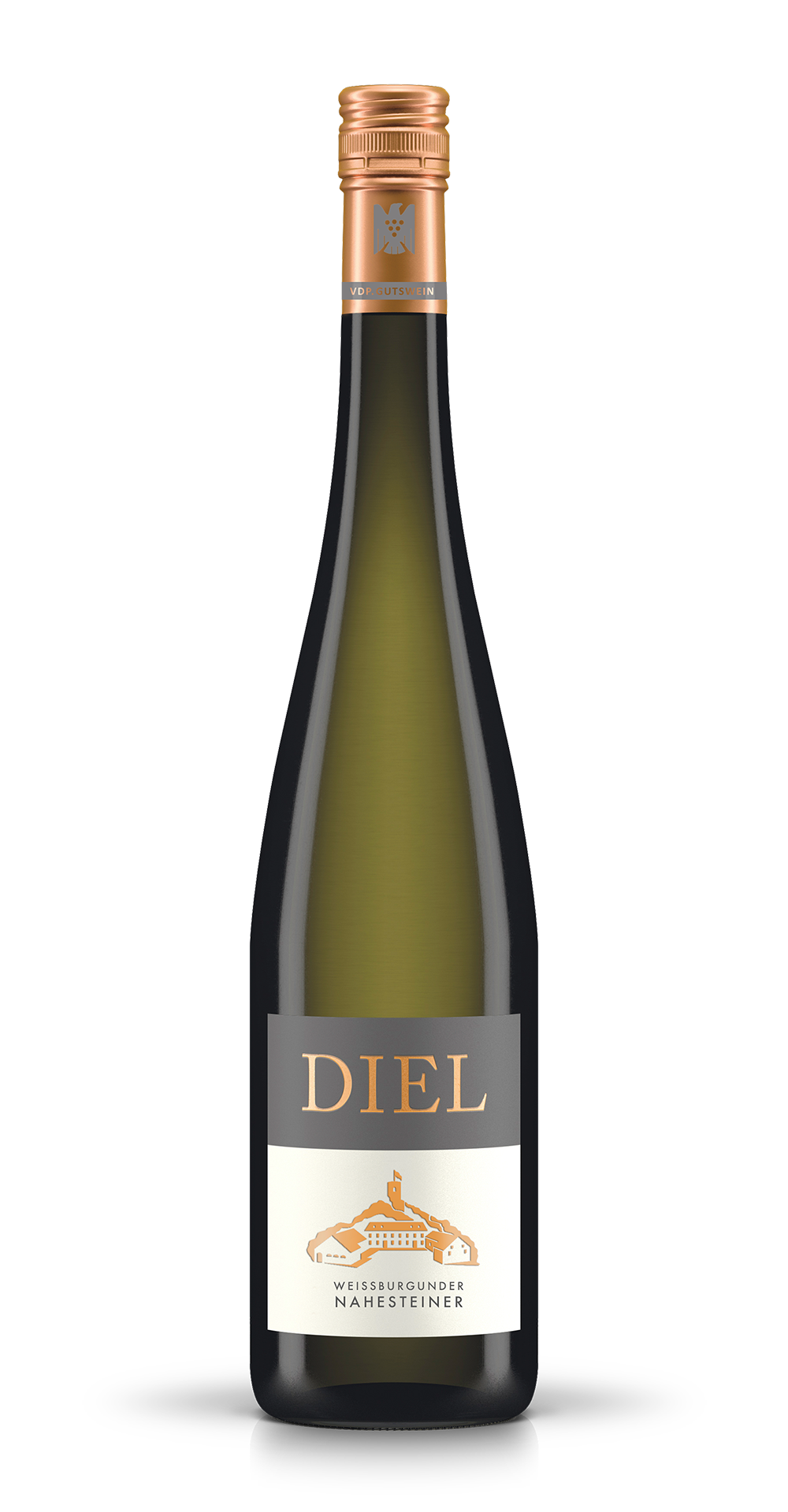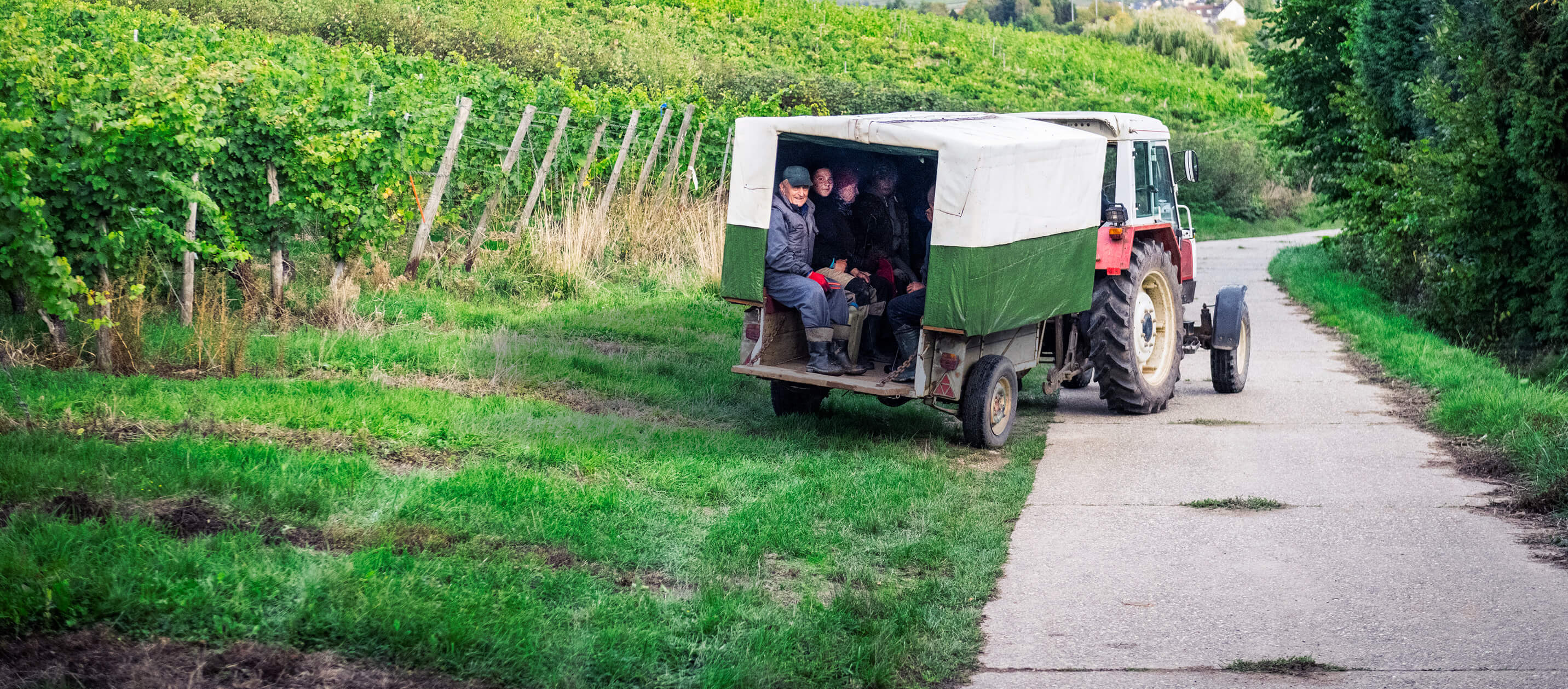Philosophy
»There’s no formula! No protocol! I base my work on a gut feeling for what's right at that moment.«
Interview with Caroline Diel –
Winemaker of the Year 2020
What is their impact on the wine?
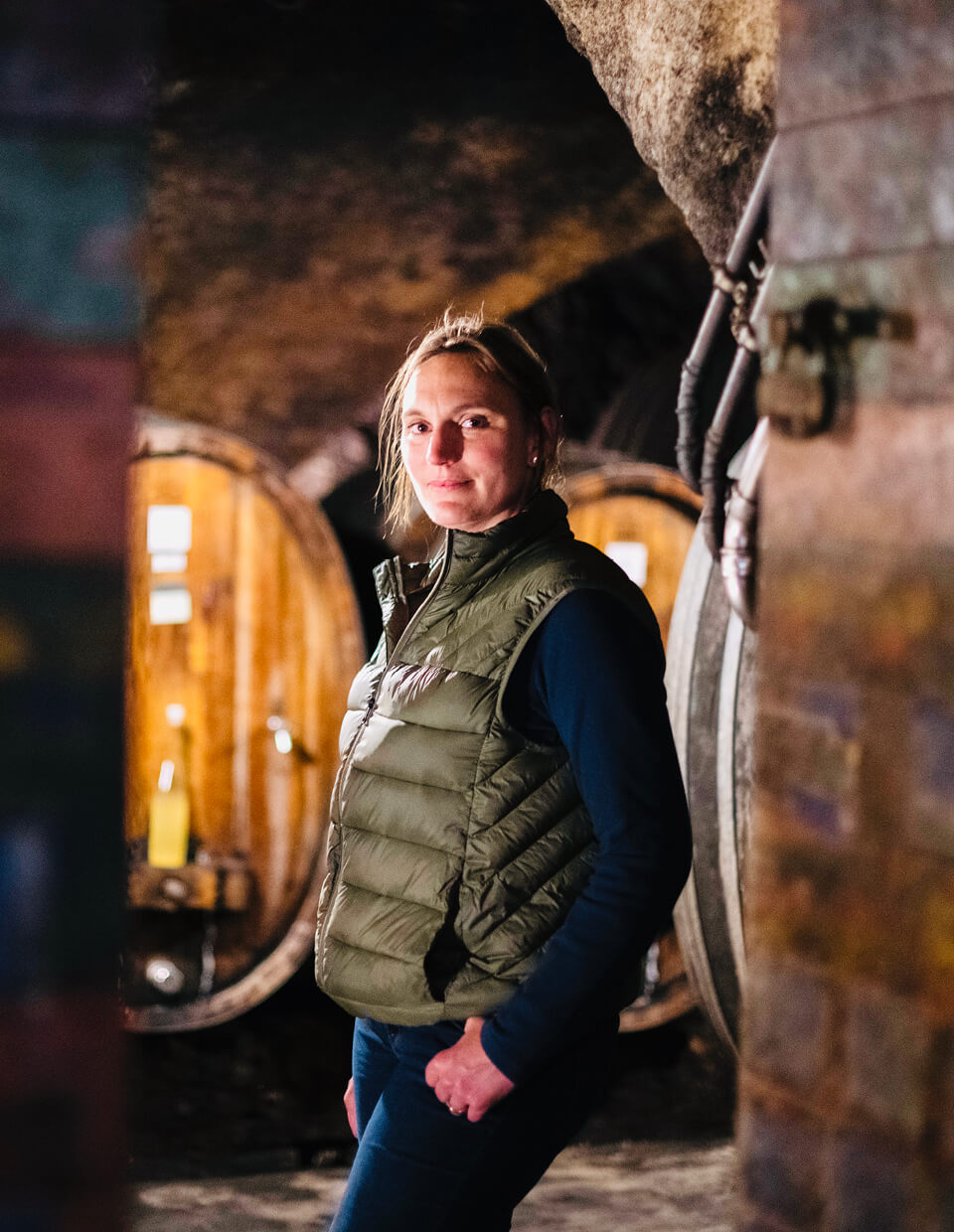
Caroline in the cellar
»Our wines have never been better than today! «
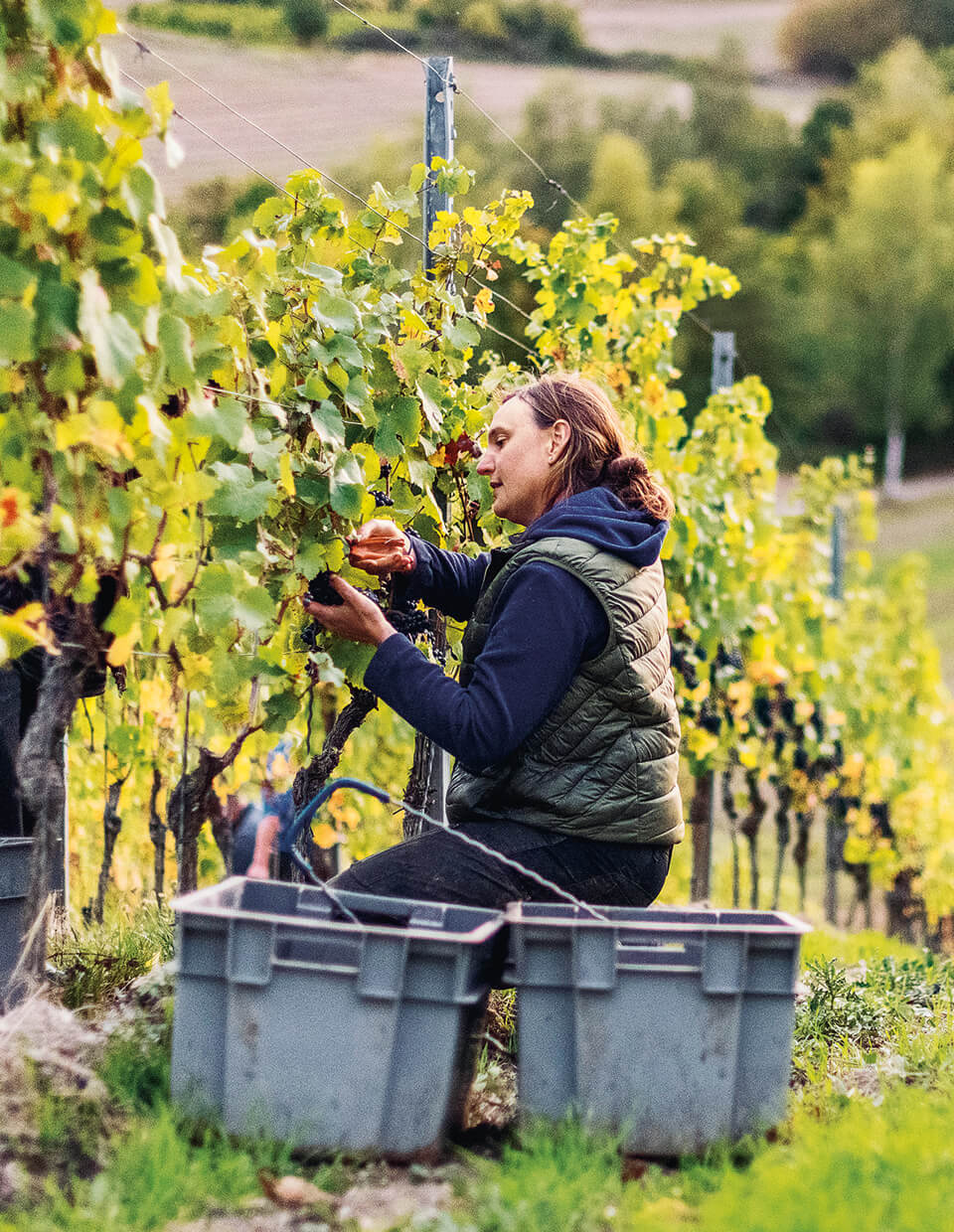
Caroline selecting grapes by hand
Which varieties grow best here?
Caroline Diel: The region is pre-destined for Riesling. The variety reflects the soils here simply perfectly and is well suited for the climate. Nahe Rieslings show a fantastic minerality, liveliness and fruit. We also cultivate Pinot Noirs and Blancs, which tend to be intensely aromatic and juicy. We cultivate roughly 2/3 Riesling to 1/3 Pinot varieties.
What size are we talking about for your estate?
Caroline Diel: Schlossgut Diel is a family-run estate. The roughly 25 hectares of vineyards are not especially large if you're comparing on the international stage. By German standards, though — especially for the more northerly growing regions — we’ve got more than enough work on our hands, not least because of our steep vineyards. It’s part of what makes us all identify so closely with this place.
What is your role in the winemaking?
Caroline Diel: I do everything, from A-Z! You need to have this passion and love for detail to have any chance of developing a feel for what's true and what really matters, and when. For me, the vineyards and the cellar are a bit like extended family. They mean a lot to me and I always like to keep an eye on them. It can be very hard working in the vineyards at times and the hills reach a 60% gradient in places, but there’s just something therapeutic about being here and looking out across the vineyards into the valley. I've got a driving force inside that makes me want to have my hand in everything that’s going on — although... I’ll admit, I’m happy to let other people drive the tractor. While I'm a university-trained enologist, I still trust my gut on many of my decisions, and when the wine in the cellar develops the way I've imagined it, then my heart sings!
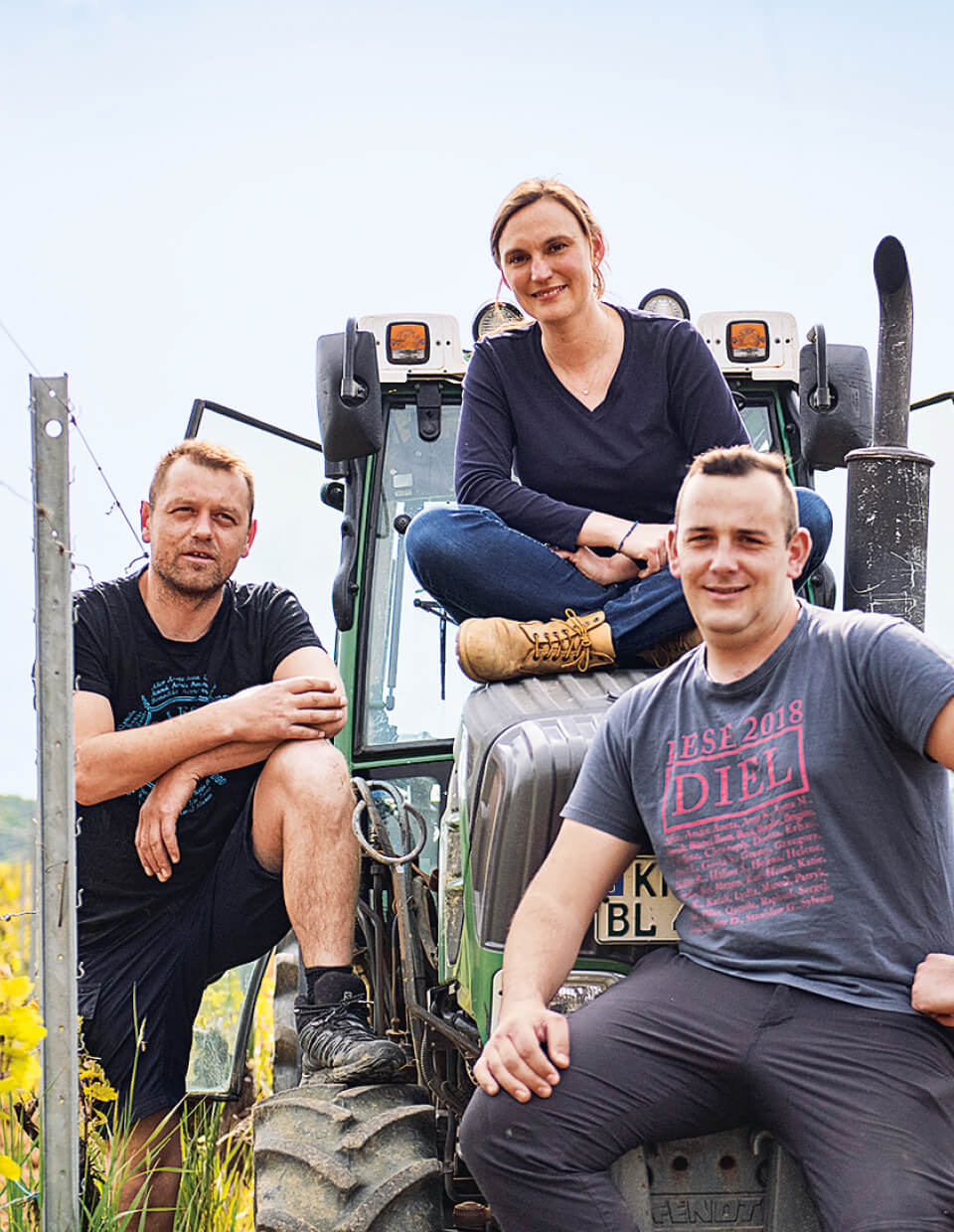
Caroline at work with Grzegorz Dobosz and his cousin Bogdan Franczek.
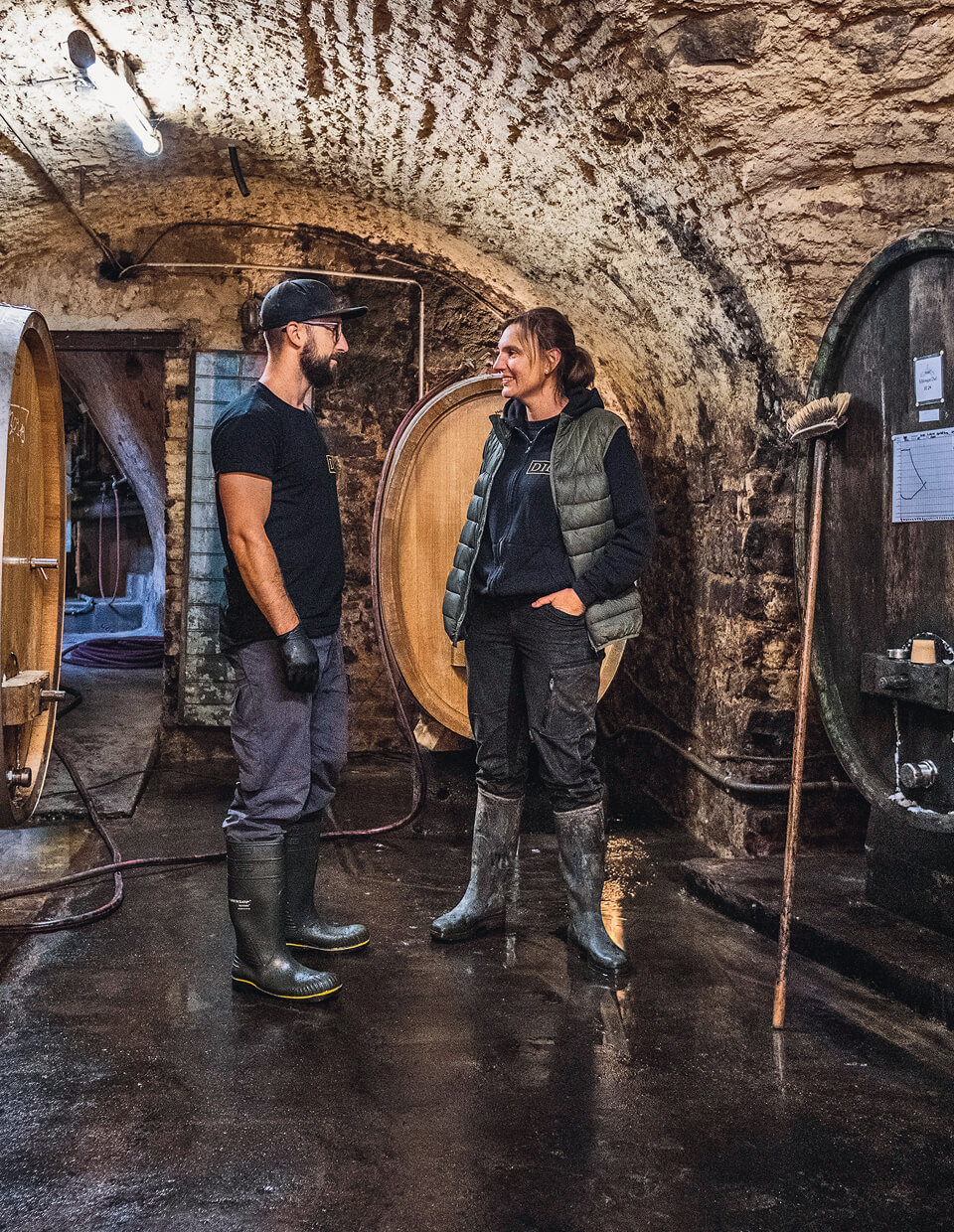
Team member Marcel Will and Caroline in the cellar.
WORLD-CLASS TEAM FOR WORLD-CLASS WINES
Are you working on your own or do you have help?
Caroline DIEL: My wonderful husband handles the marketing and sales, does a lot of the work raising the kids and has my back whenever I need it — I feel like I’ve won the lottery! Beyond that, there’s a fantastic team, not to mention Christoph Friedrich, a terrific cellarmaster who has been working here since my father was in charge. There are also roughly 10 full time employees working with me here at the estate. Every summer and fall a small harvest team comes together to help with the canopy management and selective hand harvest as well.
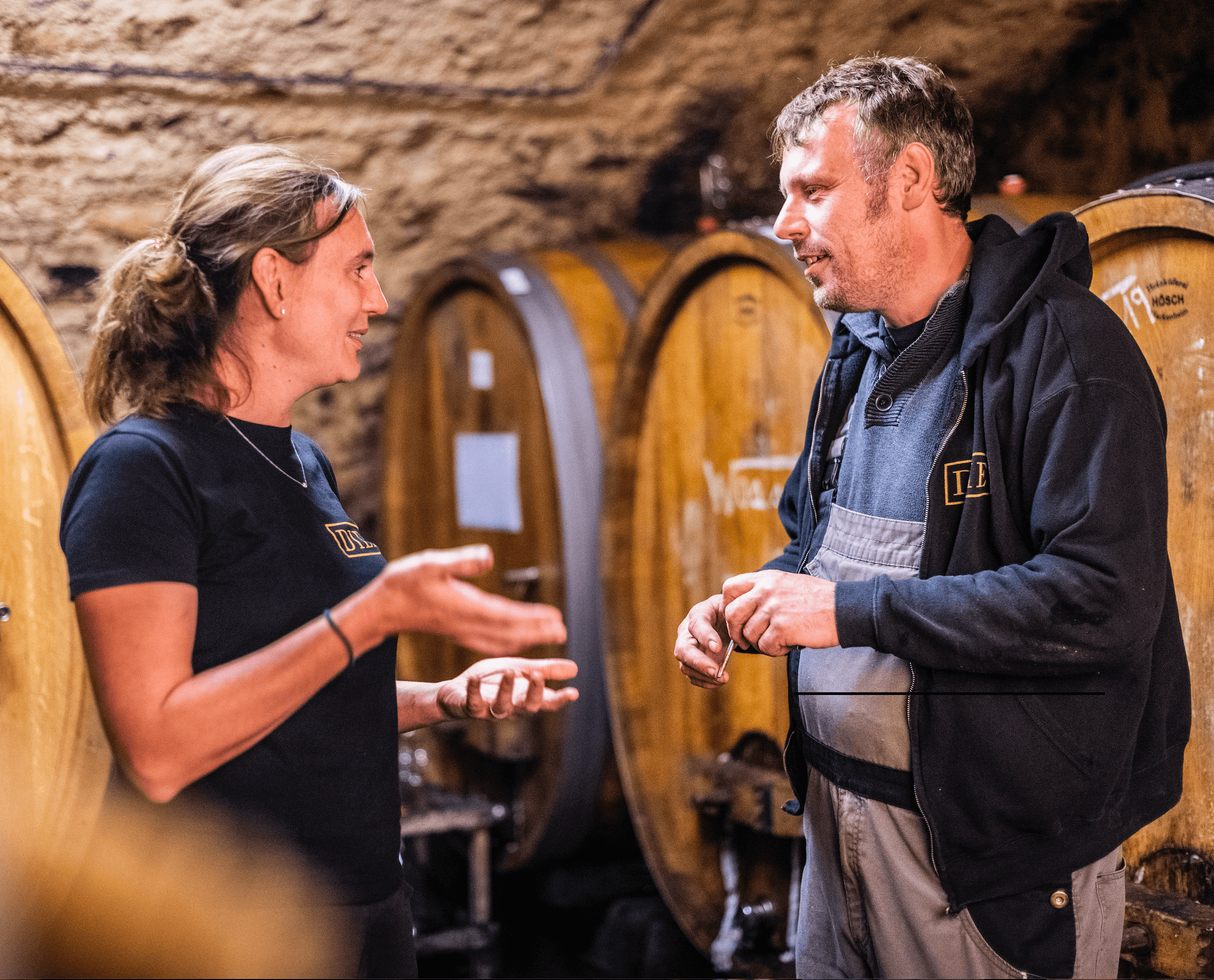
Caroline Diel with Cellarmaster Christoph J. Friedrich
What distinguishes your way of making wine from your father’s?
Caroline Diel: The key difference is that my father came to the business from another field, but he has a fantastic palate. I studied oenology, but learned the craft from the ground up. He knew his way around wine incredibly well, had a very strong ability to assess and a very precise picture of how which wines should taste. But as a non-oenologist, he had others take care of the actual production and didn't hesitate to assemble the best possible team for that. Things are different under me. I’m in the vineyards and the cellar on a daily basis, trying to understand what the vines and wines need. I always have to be right in the thick of it.
What's your motto?
Caroline Diel: Back to the roots! For me, less is often simply more. That doesn’t mean, however, that I avoid all modern progress. We consciously use as little technology as possible, but some things do just make sense, so we work with the best and most gentle versions. Sustainability is ultimately much more important to me. I want to preserve what I have here, and make the best out of it.
What Producers are saying
Petra and Philipp Helzle are drinking DIEL
Restaurant Jungborn cooks contemporary, refined, modern and imaginative.
